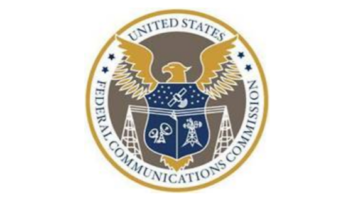FCC Plans Crack-down on Silent Stations
Nov 1, 2010 9:26 AM, By Harry Martin
The FCC’s Media Bureau, troubled by a growing number of non-operating stations, is looking into how a station’s failure to operate during the preceding license term might be factored into whether it is entitled to a license renewal. The renewal cycle for radio stations begins again June 2011.
200 silent stations: The Commission’s records show that nearly 200 AM and FM stations reported being off-the-air as of Sept. 1, 2010. And beyond that is the separate universe of stations that have ceased operation but never advised the Commission as required under Sections 73.561(d) and 73.1740(a)(4) of the rules.
The regulatory scheme: The rules permit stations to shut down from time to time, and there are many good reasons why they might: for example, equipment problems, emergency weather conditions or economic hardship. The Commission itself routinely approves suspensions of operation in six-month increments upon showings of good cause.
Such officially sanctioned suspensions cannot last longer than a year, however. Section 312(g) of the Communications Act, which the FCC cannot waive except in extraordinary circumstances, provides that any station that fails to transmit broadcast signals for any consecutive 12-month period loses its license automatically at the end of that period.
Some at the Commission believe that, despite the threat of an automatic loss of license, a number of licensees are turning their stations off and keeping them off without good cause. Those licensees dodge expiration, apparently, by returning to the air for brief periods so as to avoid a consecutive 12-month period of silence under Section 312(g). But, having operated for a while, they then go back off the air and request a new silence authorization.
The FCC has never officially addressed the question of how long a station has to be on the air to toll the 12-consecutive-month period for Section 312(g) purposes. In a 2003 decision the FCC implied that 24 hours of operation was required, but that language has not been relied upon in subsequent decisions.
Renewals may become the focus: The Commission’s staff has signaled that it will consider instances of non-operation during the preceding license term as part of the renewal process. This is likely to involve a revision of the renewal application form (FCC Form 303-S) to require each renewal applicant to provide a detailed listing of instances of non-operation during the preceding license term. Such a form revision would require approval by the Office of Management and Budget, a process that would have to begin soon if the new reporting requirement is to be in place in time for June 1, 2010, renewal filings.
A focus on the renewal applicant’s performance during the preceding term is squarely within the duties assigned the Commission by Congress. Section 309(k)(1)(A) of the Act specifies that, before it can grant an unconditional broadcast renewal, the FCC must first determine that, during the immediately preceding license term, the licensee “has served the public interest.” It is difficult to imagine how a station could have served the public interest if it was off the air for a substantial portion of its license term.
Whether the renewal form will in fact be revised, remains to be seen. After all, the 200 or so radio stations off the air as of Sept. 1, represent only about 1 percent of all AM and FM stations. And bear in mind that at least some, if not many, of those 200 stations may be off the air for valid technical reasons, with no intent to stay off longer than necessary to fix the problem. Nevertheless, it is not unusual for a few bad actors to get the agency’s attention thereby causing the FCC to impose new reporting requirements on a whole industry.
FCC Dateline
For noncommercial radio stations in Colorado, Minnesota, Montana, North Dakota and South Dakota, their biennial ownership report deadline is Dec. 1.
Dec. 1 is the deadline for radio stations licensed in the following locations to place their Annual EEO Reports in their public files: Alabama, Colorado, Georgia, Minnesota, Montana, North Dakota and South Dakota.
The radio station license renewal cycle begins again in 2011, with the first batch of renewals being due on June 1, 2011, for stations in D.C., Maryland, Virginia and West Virginia.
Martin is a member of Fletcher, Heald & Hildreth, PLC, Arlington, Virginia. E-mail: [email protected]
November 2010
Choosing a computer audio interface, a tour of the CBC/Radio-Canada’s upgrade, multimedia for digital radio, calculating STL fade margin and more….









